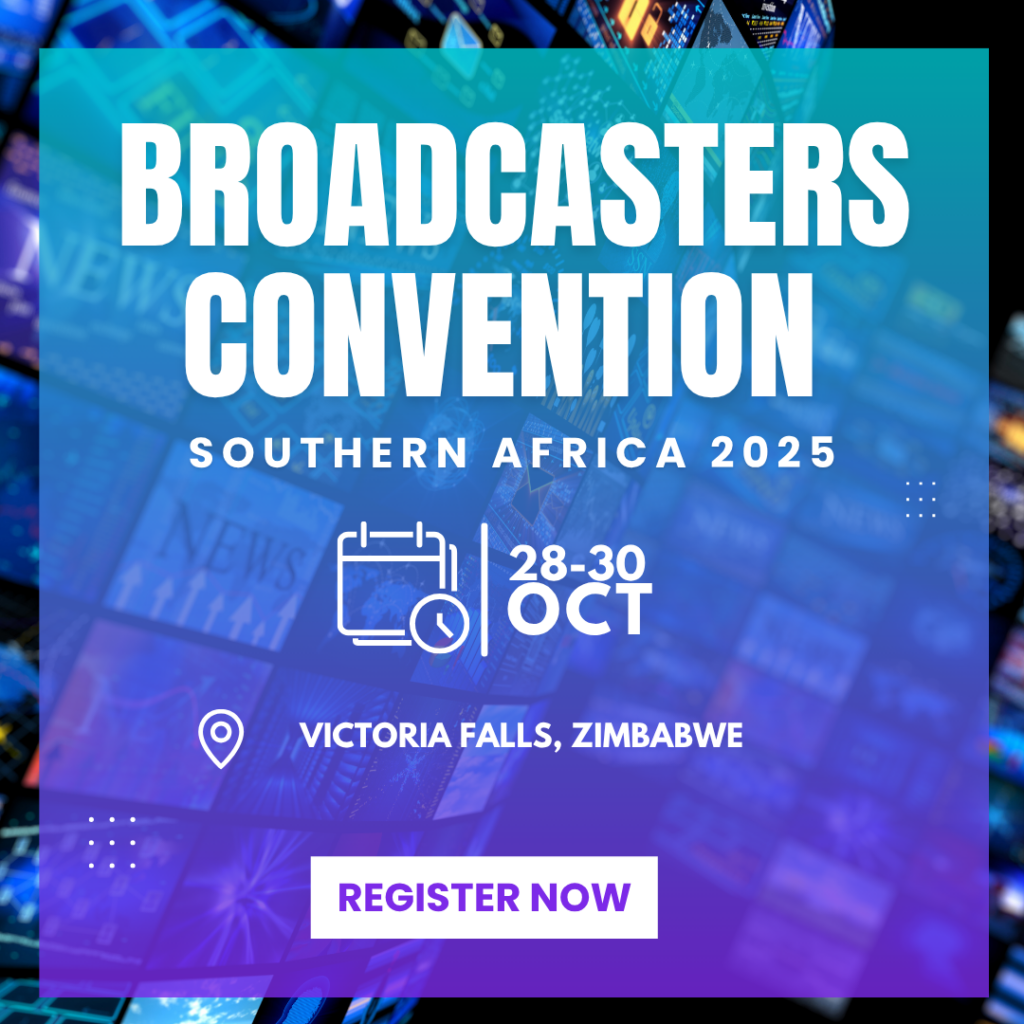
As Africa’s media and broadcasting landscape continues to evolve in the face of rapid digital transformation, the role of regulators has never been more critical. Ahead of the Broadcasters Convention – Southern Africa 2025, taking place from 28th to 30th October 2025 in Victoria Falls, Zimbabwe, Mr Webster Malido, Director General of the Independent Broadcasting Authority (IBA) of Zambia, emphasises the importance of fair, transparent, and accountable regulation in shaping a sustainable and inclusive digital ecosystem.
According to Mr Malido, the regulator’s role goes far beyond enforcing rules and issuing licenses. It extends to fostering a media environment that respects competition, protects consumers, and promotes responsible content distribution.
“At the Independent Broadcasting Authority, fairness and transparency are central to how we engage with licensees,” he notes. “For example, in collaboration with broadcasters, the Authority developed the Guidelines for Enforcement and Handling of Compliance Breaches. These guidelines clearly outline the responsibilities of both the regulator and licensees, ensuring consistency and eliminating bias in handling cases.”
Developed through a consultative and transparent process, these frameworks have strengthened trust between the IBA and its stakeholders—showing how regulatory institutions can balance accountability with collaboration. “By engaging licensees openly, we build shared understanding and consistent compliance across the sector,” he adds.
As discussions on global digital governance intensify, Mr Malido argues that Africa must craft its own path that reflects the continent’s socio-economic, cultural, and technological realities.
“While global models offer valuable lessons, a one-size-fits-all approach is rarely effective,” he asserts. “Our regulations must be flexible, context-driven, and forward-looking—balancing innovation and growth with consumer protection and equitable access.”
He says a distinctly African regulatory framework should take into account the continent’s linguistic diversity, local media dynamics, and community-based broadcasting models, which often transcend traditional Western systems.
The IBA’s proactive approach to industry engagement serves as an example. “Initiatives such as the Media Owners Association of Zambia (MOAZ)—which was inspired and encouraged by the IBA—illustrate how regulators can bring media owners together to foster dialogue, self-regulation, and shared growth,” Mr Malido explains.
Central to Mr Malido’s message is the belief that collaboration, not confrontation, is the key to a thriving media landscape. Regulators and industry leaders, he says, share a common goal: building a credible, sustainable, and responsible media sector that serves the public interest.
“In Zambia, for instance, media leaders regularly engage with the IBA to discuss regulatory updates, content standards, and emerging technologies,” he notes. “This collaborative approach helps maintain editorial independence and compliance with broadcasting standards—strengthening public trust and enhancing the overall quality of content.”
Through open dialogue and mutual respect, the relationship between the IBA and broadcasters has evolved from oversight to partnership—where creativity, responsibility, and integrity reinforce one another.
As the region’s broadcasting and media leaders convene from 28 to 30 October 2025 in Victoria Falls, Zimbabwe, Mr Malido hopes participants will leave inspired and equipped with new strategies for navigating the rapidly changing digital environment.
“The theme and topics of this gathering highlight the importance of fairness, transparency, and collaboration between regulators and industry players in driving sustainable growth,” he says. “I hope this convention strengthens cross-border cooperation among African broadcasters, inspires innovation, and underscores the value of responsible and transparent regulation.”
Ultimately, Mr Malido envisions a dynamic, ethical, and forward-looking African media sector—serving audiences with integrity and impact.
“As regulators, our responsibility is not only to enforce but to enable—to create conditions where Africa’s broadcasters can thrive while upholding the highest standards of accountability and public trust.”


















